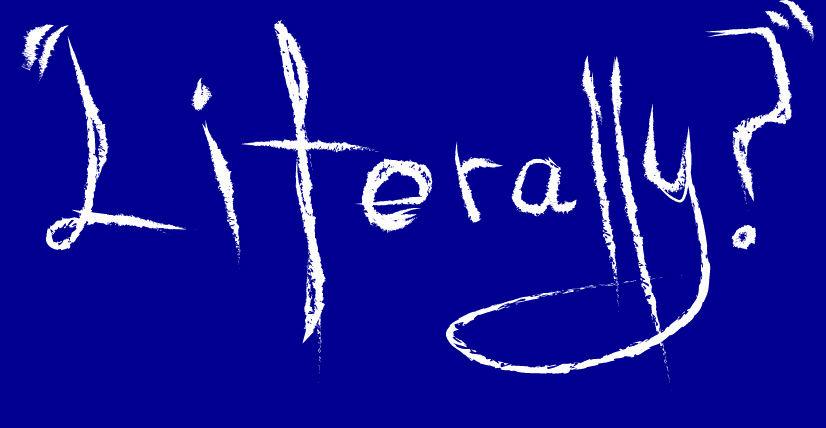I’m no linguist, but the abuse and misuse of the word “literally” literally drives me crazy.
“Literally” is sprinkled too lackadaisically in conversational dialogue to over-emphasize events to no avail. Nonetheless, the English language community has embraced this linguistic abomination and uses it ad nauseam. How did this happen?
According to the Oxford English Dictionary, in its standard use, “literally” means “in a literal sense or strictly.” For example, “The novel was translated literally from the French.”
In recent years, “literally” is more commonly used in nonliteral contexts. Given its original denotation, it’s clear to see the word was once grammatically stable and static, like most words in the English language.
For starters, the second and more colloquially endorsed definition contradicts the first. The informal definition of the word “literally” is used to add effect or emphasis when a statement is not true. This so-called definition has been included in the Oxford English Dictionary. Alas, both definitions coexist.
Admittedly, newspaper columns can do little to no justice in the quest for semantic precision. The aforementioned contradiction is staggering. This word can’t even be used interchangeably with itself. If someone said, “The novel was translated literally from the French,” in its second sense, this sentence would be completely incoherent. Absolutely nothing in that statement requires any emphasis. If someone said, “I literally just died,” strictly speaking, clearly this person is not dead.
Who is responsible for this? “Literally’s” pervasive metaphorical usage is now in its strongest form. The deliberate misuse of the word in the past is miniscule compared to millennials’ usage. Brilliant millennials now wreak havoc in the worlds of writers, grammarians and orators alike. Because they have the numbers, the place of millennials will forever be cemented in history books as the generation that has gotten a word so wrong, it’s now right.
This phenomenon is simply due to quantity. When the majority of a linguistic community embraces a popular misconception, be it right or wrong, it is now viewed as the norm.
The more idiotic American culture becomes, it has to modify its language to complement it. Given America doesn’t have much, you would think its people would attempt to preserve some cultural dignity. I don’t think a little clarity is too much to ask for.
What can we definitively say about the erroneous usage of “literally?” At best, the misused literally is but a mere dialogical lubricant that makes exchange between American speakers a little smoother…literally.
Eli Minor is a 19-year-old philosophy junior from New Orleans. You can reach him on Twitter @eliminor_TDR.
Opinion: ‘Literally’ is devoid of its original meaning
By Eli Minor
September 17, 2015
More to Discover









